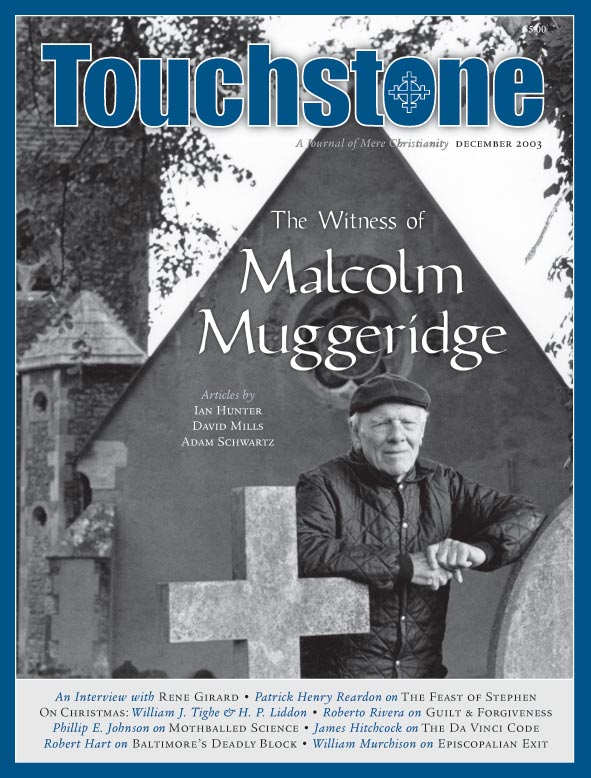Mothballed Science
The peppered moth story, for almost fifty years the prime textbook example of evolution by natural selection, is fast becoming biology’s greatest embarrassment. Before long, Biston betularia, to use the moth’s scientific name, will be famous only as the subject of a messy experiment whose faults were overlooked because the data were needed to support something that leading biologists and many other people badly wanted to believe.
Anybody who ever took a biology class has seen the photos of light and dark moths that all the textbooks use to illustrate this classic example. The official story is that the peppered moth in Britain, normally off-white with a freckling of black scales, was well camouflaged against a background of lichen-covered tree trunks until the Industrial Revolution. In 1848, a collector spotted a single dark (melanic) moth in the industrial midlands. Thereafter, the melanic variety quickly spread throughout polluted industrial districts.
Scientists theorized that smoke from the factories killed the lichen and darkened the tree trunks on which the moths were believed to rest during the day. Viewed against the newly blackened background, the melanic moths were virtually invisible to birds and so flourished uneaten, while the lighter variety became bird food and declined in number, until air pollution restrictions in the mid-twentieth century allowed the lichen to grow back on the tree trunks. Then the lighter-colored moths made a rapid comeback, or so the story goes.
THIS ARTICLE ONLY AVAILABLE TO SUBSCRIBERS.
FOR QUICK ACCESS:
Phillip E. Johnson is Professor of Law (emeritus) at the University of California at Berkeley. He is the author of Darwin on Trial, The Wedge of Truth, The Right Questions (InterVarsity Press), and other books challenging the naturalistic assumptions that dominate modern culture. He is a contributing editor of Touchstone.
subscription options
Order
Print/Online Subscription

Get six issues (one year) of Touchstone PLUS full online access including pdf downloads for only $39.95. That's only $3.34 per month!
Order
Online Only
Subscription

Get a one-year full-access subscription to the Touchstone online archives for only $19.95. That's only $1.66 per month!
bulk subscriptions
Order Touchstone subscriptions in bulk and save $10 per sub! Each subscription includes 6 issues of Touchstone plus full online access to touchstonemag.com—including archives, videos, and pdf downloads of recent issues for only $29.95 each! Great for churches or study groups.
Transactions will be processed on a secure server.
more on science from the online archives
more from the online archives

15.6—July/August 2002
Things Hidden Since the Beginning of the World
The Shape of Divine Providence & Human History by James Hitchcock
calling all readers
Please Donate
"There are magazines worth reading but few worth saving . . . Touchstone is just such a magazine."
—Alice von Hildebrand
"Here we do not concede one square millimeter of territory to falsehood, folly, contemporary sentimentality, or fashion. We speak the truth, and let God be our judge. . . . Touchstone is the one committedly Christian conservative journal."
—Anthony Esolen, Touchstone senior editor












